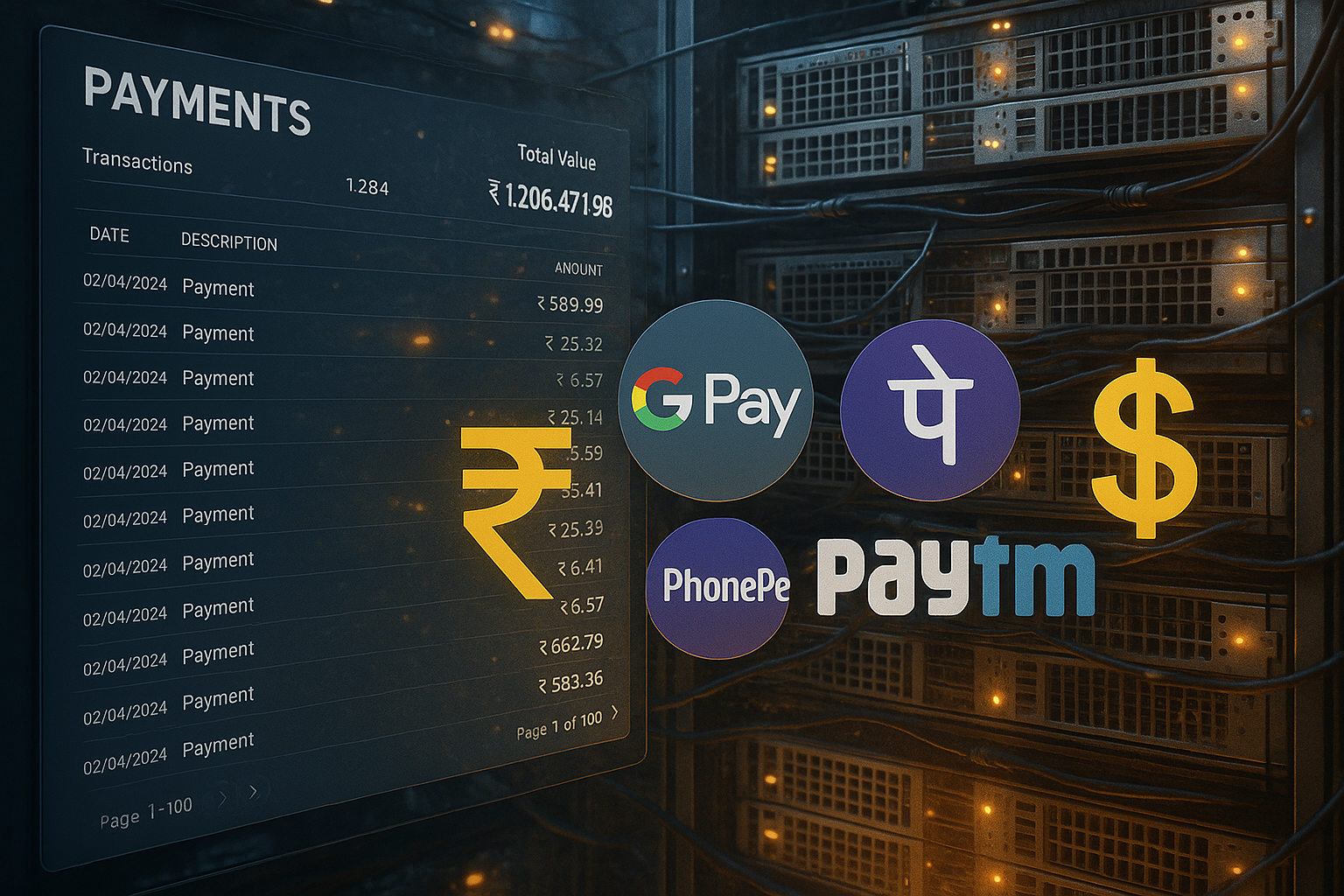India’s financial ecosystem is now facing an unintended side effect of its digital payment revolution: the rising cost of processing small-value transactions. According to recent industry signals, several banks and payment infrastructure providers are increasingly burdened by low-ticket UPI payments, sparking renewed conversations around the sustainability of free digital payment models.
As digital micro-payments surge in volume but yield little in fees, the economic viability of zero-cost transactions for banks is being questioned. Industry experts believe this could drive a shift in pricing, partnerships, and platform economics — particularly affecting fintechs and consumer-facing apps.
Background: UPI Growth Has Outpaced Monetization
Volume vs. Value Mismatch: While UPI crossed 13.9 billion monthly transactions in June 2025, a majority of these were low-value payments below ₹100.
Infrastructure Stress: Every transaction, regardless of value, costs money to process (server loads, fraud protection, SMS alerts, etc.), eating into banks’ operational budgets.
No MDR Policy: India’s zero-MDR (Merchant Discount Rate) regime on UPI means banks don’t earn interchange fees on these transactions — unlike credit cards or debit cards.
As a result, both large and small banks are reporting significant cost escalations without corresponding revenue benefits from UPI volumes.
Impact on Banks & PSPs
| Entity Type | Impact |
|---|---|
| Banks | High transaction volumes are burning infrastructure budgets, especially for smaller banks with limited digital infrastructure. |
| Payment Service Providers (PSPs) | PSPs like PhonePe, Google Pay, and Paytm may see partner banks renegotiate service-level agreements. |
| NPCI | The National Payments Corporation of India may come under pressure to revisit its current fee model. |
A senior executive from a leading private sector bank noted:
“We’ve reached a point where scale is hurting rather than helping. There is no revenue, but there are rising infra and fraud costs.”
Possible Outcomes Being Discussed
Tiered Pricing for UPI: Regulators may eventually allow banks to charge a minimal fee for certain categories of UPI payments — possibly exempting government and welfare payments.
Caps or Limits on Free Transactions: Some industry voices are floating the idea of daily caps on free UPI use, after which nominal charges could kick in.
Fintechs to Share Costs?: Payment apps might be asked to co-fund transaction costs with their partner banks, especially for high-volume, low-value use cases like bill payments, OTT subscriptions, or micro-recharges.
What This Means for Swiggy, Zomato, OTT & Recharge Apps
Apps like Swiggy, Zomato, Dunzo, and Amazon Pay rely heavily on small-ticket transactions, often under ₹200.
If banks begin charging even 10–20 paise per transaction, platforms with millions of daily transactions could see their margins shrink.
This might lead to:
Bundling payment costs into food delivery/service fees
More incentivization of prepaid wallets or credit-based payment models
Reduced reliance on UPI for micro-purchases
Expert Take
“UPI’s economic model was never designed for indefinite scale without revenue. India needs to move from a zero-revenue payment infrastructure to a sustainable one that doesn’t punish innovation,”
— Fintech Policy Analyst, NIPFP
“Either the government subsidizes the back-end infrastructure, or pricing will be inevitable. Free forever is not feasible,”
— Digital Banking Expert, Mumbai-based VC firm
Conclusion
India’s digital payment system is at a crossroads. While UPI has successfully democratized cashless transactions, the economic burden of small-value, high-frequency payments is becoming unsustainable for banks and PSPs. As policy makers, fintechs, and banks evaluate the next step, some form of monetization or cost-sharing appears likely in the near future.
For consumers and businesses alike, this may mean the end of entirely free UPI for all categories, with new norms around pricing, limits, or usage thresholds.












